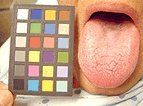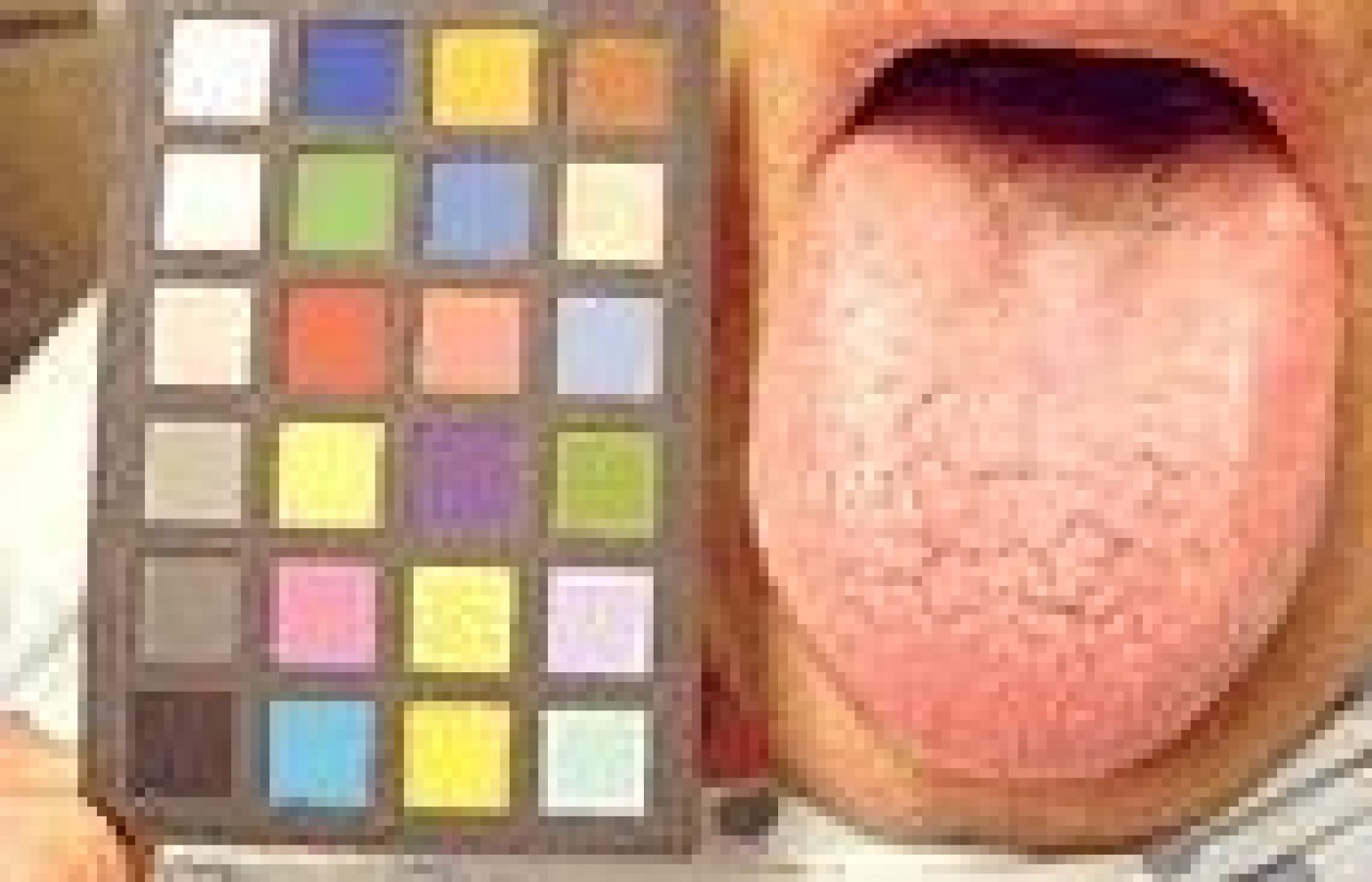The most important relationship I seek to nurture in the treatment room is the one a patient has with their own body. We live in a culture that teaches us to override pain, defer to outside authority, and push through discomfort. Patients often arrive hoping I can “fix” them, but the truth is, we can’t do the work for them. We can offer guidance, insight and support, but healing requires their full participation.
Can Tongue Diagnosis Predict Colon Cancer?
While many poets believe the eyes are the windows to the soul, many acupuncturists and doctors of Oriental medicine believe that the tongue provides a window to the inner workings of the body. For thousands of years, tongue diagnosis has played an indispensable role in the practice of traditional Chinese medicine. TCM practitioners rely on tongue diagnosis to differentiate one syndrome from another, and use variations in the tongue's color, texture, shape and coating to evaluate a patient's condition.
Researchers at Carnegie Mellon University and the University of Pittsburgh Medical Center are taking a scientific approach to the usefulness of tongue diagnosis. In what is believed to be the first study of its kind in the United States, the investigators have begun taking computerized images of patients' tongues to see if an examination can provide an early indication of colon cancer.
Yang Cai, PhD, a native of Suzhou, China and a systems scientist at Carnegie Mellon, is responsible for taking and analyzing the tongue images. He also has a vested interest in the subject, having lost a close friend to ovarian cancer and an aunt to brain cancer only four months after being diagnosed.

Determined to learn more about the relationship between the appearance of the tongue and certain cancers, Dr. Cai talked to Chinese medical experts and collected volumes of medical literature. He found several studies dating as far back as the 1960s that showed a correlation between the characteristics of the tongue and health conditions such as fever, dehydration and assorted internal diseases. For example, one intriguing paper, published in the Chinese-language Journal of Oncology in 1987, examined the tongues of more than 12,000 patients and found "significant changes" in color, coating and texture in the tongues of cancerous patients compared to those without cancer.
The results of Cai's informal investigation led him to Dr. Robert Schoen, director of colorectal and gastrointestinal cancer prevention and control research at the University of Pittsburgh Cancer Institute (UPCI). After initial discussions, Schoen warmed to the idea of tongue diagnosis and allowed Cai to add his research project to Schoen's ongoing study with the Early Detection Research Network.
"I'm a big proponent of applying rigorous scientific methodology to things like traditional Chinese medicine," said Dr. Schoen.
Like Cai, Schoen's work centers around the early detection of colorectal cancer. However, while the bulk of Schoen's research consists of collecting blood and tissue samples from people who have already undergone a colonoscopy or surgery, Cai studies only patients in the preparation stages of a colonoscopy, an examination of the large intestine.

Patients about to receive a colonoscopy aren't allowed to eat for a minimum of six hours before undergoing the procedure. This benefits Cai in that it prohibits the patients from consuming something that would affect the color of the tongue. Using a digital camera, Cai takes two photographs of each tongue, with a color calibration chart for confirmation. He then uses vision technology software to isolate the tongue's image from other features in the mouth, and documents the color, texture and shape to create a mathematical model of each tongue, which is stored in a computer database.
To date, Cai has personally photographed more than 30 tongues, and has provided a camera and instructions on tongue imaging to Xingming Lin, a traditional Chinese medical doctor who oversees a cancer unit at Anhui Medical School in Hefei, China. In addition, Schoen has offered to share diagnostic information to determine whether the patients Cai photographed are diagnosed as normal, precancerous or cancerous.
While Schoen admits to some skepticism, he believes that Cai's research has merit. If tongue screening proves accurate, it would give providers an inexpensive, noninvasive alternative to a traditional colonoscopy.
"From a clinical standpoint, it's not really much of a burden to the patients to stick out their tongue and have a picture taken," Schoen explained. "If one could see some characteristics of the tongue correlated to the presence of adenomatous polyps that have the potential to transform into cancer, that would be great. Then you could just go around and take pictures of people's tongues. That's a lot simpler than doing colonoscopies."
Schoen noted that the tongue plays an important role in the diagnosis of Western-trained physicians as well. The color of the tongue, for instance, could indicate nutritional deficiencies, or conditions ranging from anemia to scarlet fever. An enlarged or inflamed tongue, meanwhile, could be a sign of infection elsewhere in the body.
"The tongue is one of the first parts of the GI tract that's visible," Schoen said.
Dr. Ronald Herberman, UPCI's director, is responsible for overseeing the work of Cai and Schoen. If tongue diagnosis proves useful, Herberman feels it could be used as part of a routine cancer screening at the institute.
"There may be valuable insights to come from the traditional Chinese experience," offered Herberman. "I can't dismiss out of hand what's been going on for hundreds of years because many of the drugs that actually are used in the United States and Europe started out as folk medicines."
For Dr. Cai, the goal of his project is not to replace the conventional means of detecting colorectal cancer simply by looking at the tongue, but rather as an alternative screening method that can accurately and effectively produce an early warning sign. That sign may be as simple as having a patient see a physician for a more complete evaluation, but it may make a significant difference in terms of cancer treatment, intervention, and a positive outcome of care.
For more information on the tongue diagnosis research project, contact Dr. Cai at ycai@cmu.edu.
References
- Snowbeck C. Researchers exploring whether tongue can reveal colon cancer. Pittsburgh Post-Gazette October 1, 2002.
- Curran A. Tongue tells health tales. Carnegie Mellon Magazine Fall 2002.
- 12,448 cases of the clinical observation of cancer patients' tongues. Journal of Oncology (Chinese) 1987;7(3).



